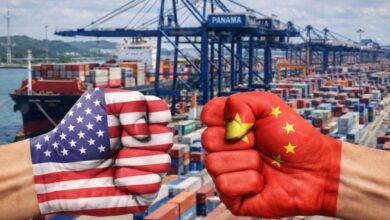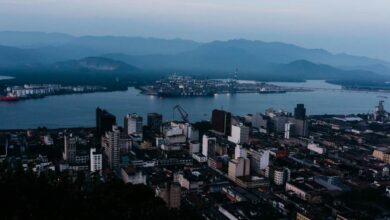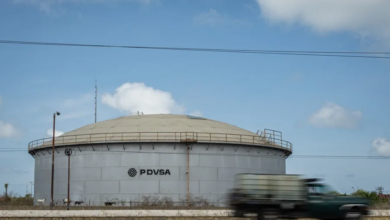If it is not the fall of Xi Jinping, what can change in China with the protests?
Protests over China's strict Covid-zero policy measures have created an unusual context. Although XI Jinping's position is not at risk, what can happen to the Asian giant?

Photo: China News Service
LatinAmerican Post | Santiago Gómez Hernández
Listen to this article
Leer en español: Si no es la caída de Xi Jinping, ¿Qué puede cambiar en China con las protestas?
Today China is experiencing an unusual moment. Protests spread across various cities in the country seek immediate changes in the Zero Covid policy that the Asian government has implemented. Experts rule out that the position of the top leader, Xi Jinping, could be at some risk. However, the demonstrations that are seen today are historical and possible changes are not ruled out.
What Is Happening In China?
If in the West we suffer from the restrictive measures against Covid-19, it is nothing compared to China. Even today, strict and mandatory quarantines, not only for the positive cases but for all the people who are nearby, which has led to the closure of entire buildings.
This policy, which has been going on for several months, does not seem to give the expected results, since the numbers of infections in the country continue to increase.
This has already caused fatigue among the Chinese population and has generated protests in various cities against politics, the local government, and even against the president, Xi Jinping.
Although it is not true that protests are prohibited in China, indeed, they are usually against specific policies, local governments, or cases of corruption. Protests against the president or the Chinese Communist Party are severely persecuted and are usually not very large.
The recent protests have something surprising: first, they are protests spread across different urban centers, from Shanghai (China's most important port and its economic engine) to Beijing (capital and political center), passing through Hong Kong or different intermediate cities. . Also, it has been recorded that some of these protests ask for the head of the president.
This demonstrates the desperation that the Chinese live in today, locked in their homes due to the uncompromising policy that is leading the population to exasperation and a possible economic crisis.
What Is The Zero Covid Policy About?
The policy is quite broad and has severe restrictions to ensure the spread of the virus. The measures range from confining entire cities (it has already happened in Wuhan, where it is speculated that the virus was born, or in Shanghai, the economic center of China).
But it also affects foreign travelers who must stay in hotels for several days while they go through a quarantine period and many cannot even leave their homes without first having a negative Covid test of fewer than 24 hours.
Citizens are not only tired of having to stay locked up in their homes, but many protests that they do not have enough savings to survive without being able to go to work. There are even those who denounce a fire in the city of Urumqi, Xinjiang. 10 people died because the emergency exits were blocked. After all, the building itself was in quarantine for coronavirus. Although the authorities have denied this relationship, the protesters take this event as a sign of the current problem in China.
Why Is China Aiming For A Zero Covid Policy?
The controversy that the Chinese government seeks tremendously restrictive measures even though 90% of the population is vaccinated has generated suspicion. However, Chinese vaccines have not demonstrated the level of immunity that other Western vaccines have, which has also put vaccination campaigns in the country on the ropes.
This, added to the need that Xi Jinping has had to control the problem from the root to send a message to the world. To clean up the image of China as the "creator of the coronavirus" and become a sanitary immune country.
What Can These Protests Achieve?
Although the true extent of the demonstrations in China is uncertain, a major change in the Chinese regime is almost ruled out entirely. However, other theories are a little more optimistic about the current political situation in China.
An obvious option is to achieve a relationship in China's policy on Covid-19. The same World Health Organization had classified the “Zero Covid” policy as “unsustainable”. The UN agency in charge of public health that had so much favored quarantine policies to control the first waves, Tedros Adhanom Ghebreyesus, full head of the international organization, assured "when we talk about the zero covid strategies, we do not believe it is sustainable considering the behavior of the virus today and what we anticipate for the future”.
Also read: It is not only Qatar. Rights-violating countries that want to host the next World Cups
Likewise, several economic experts fear that the consequences of China's restrictive policy will have global repercussions. Alicia García Herrero, a senior fellow at Bruegel and director of economics for Asia-Pacific at Natixis, warned that the “Zero Covid” policy may have greater consequences for the world economy than the war in Ukraine.
Although, another possibility is that these protests today reach important cities in China. Be the first flame that generates a more open political participation against the party, or at least less police repression.
The government has indeed accepted that the Zero Covid policy has generated "complaints for being excessive" and that they have altered "normal life". This self-criticism, unusual in the regime of the Chinese Communist Party, opens the door to a more democratic stage. However, other voices within the Government insist on maintaining their measures and being more intransigent, despite the discontent of the people. If it is true that Xi Jinping sees giving in to criticism as a sign of weakness, failure to do so on time could further escalate the tension that today has thousands of Chinese on the streets despite state repression.




